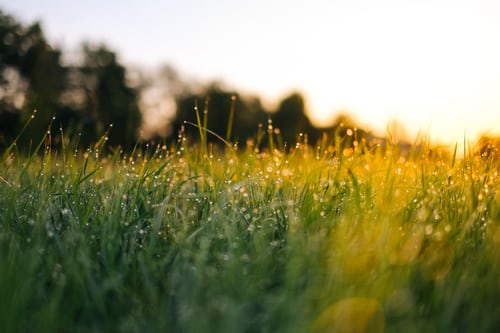At this year’s Passover Seder, I was struck like never before by the realness and immediacy of the 10 plagues, writes Kohenet Yael Tischler. The Seder, the festive meal that helps us tell the story of Passover – that is, the Exodus from Egypt – is all about things feeling real. It says in the Haggadah (the book used to facilitate the Seder proceedings) that “in every generation, a person is obligated to see themself as though they came out of Egypt.” We aren’t telling the story as though it happened long ago, we’re supposed to tell the story as if it happened to us. And let’s face it – it did happen to us, it’s happening to us right now, and it will happen to us again.
Rabbi Geoffrey W. Dennis says that “myth” is “not a story about something that never happened. It’s a story about something that happens all the time. Myths are archetypal tales, fabulous stories told to help us fathom important truths – truths about ourselves, our universe, and how things really are” (The Encyclopedia of Jewish Myth, Magic & Mysticism, xii). When we tell the story of the Exodus, we tell it as though it runs deep in our bones, because it does. We are each of us coming out of Egypt, all the time, in our own way, journeying through whatever our wilderness is to our own promised land. For many of us this year, our Egypt may be the constriction and struggle of the coronavirus epidemic – perhaps we ourselves or our loved ones are ill; perhaps we are in quarantine, lockdown or socially distanced; perhaps we fear for our own lives or the lives of others; perhaps we we fear for our livelihood or struggle to fulfil our basic needs; perhaps our mental health is on the line; perhaps we are key workers, stretching ourselves to our limits to care for those who are ill. Our promised land may be the other side of this epidemic, in a world transformed by struggle. The wilderness may be the space we wander through as a society, working together to weather this crisis.
But the piece of the Seder that felt most alive, most immediate to me this year was the 10 plagues. In the story of the Exodus, G-d/dess sends 10 plagues on the Egyptian people, as punishment for Pharaoh’s oppression of the Israelites and in an attempt to convince him to free them. As I read the list of Plagues this year, spilling my wine to show that my joy at my own liberation was diminished because of the suffering of my oppressors, I couldn’t help but feel that the plagues were happening all around me.
Blood
All of the water in Egypt turns to blood, so there’s no water for drinking or washing.
We’ve all been reminded in recent months just how important it is to be able to wash our hands with warm, clean water. But for many places in the world, there isn’t access to clean water for drinking or washing. These places are particularly vulnerable to the coronavirus epidemic. Over 40% of the Global population lives in areas that don’t have access to potable water, which already yields an incredibly high death toll, and this will almost definitely get worse due to the pandemic.
Frogs, Lice, & Wild Beasts
Frogs, lice and wild beasts, each in turn, swarmed through Egypt in droves, pestering and attacking the inhabitants. The animals leave their own habitats, moving into places where human beings live.
When we destroy animal habitats, they have no choice but to live in our habitats (which were once theirs). According to this article in The Guardian, human destruction of biodiversity hurts other animals, but it also hurts us. Many viruses that are harmful to humans originate in animals, and when we destroy animal habitats, those viruses, like covid-19, make their way into humans.
Pestilence & Boils
Diseases that affect both humans and animals ravage Egypt.
This one almost goes without saying. We’re in the middle of a global pandemic. Our health, and the health of our loved ones, and the health of all those with whom we share this Earth, hangs in a balance.
Hail-Full-of-Fire
Dramatic, unnatural, destructive weather patterns take hold in Egypt.
Even before covid-19, we were already in the midst of a climate emergency. We have seen storms, wildfires, flooding, global warming, and more. Our collective survival, and the survival of all living beings with whom we share this planet, rests on an immediate, systematic shift in how human beings interact with the earth.
Locusts
Pests destroy Egypt’s food supply.
East Africa is currently facing its own plague of locusts, which has been exacerbated by the climate emergency and the war in Yemen. This is wreaking havoc on food supply in the region.
L’havdil (that’s a Hebrew phrase you use when you want to be clear that two situations are absolutely not the same and should not be compared, even when you are speaking about them together) – when going to the supermarket during the ppandemic, it can feel as though locusts have visited. This is, luckily, the first time in my life that I’ve ever experienced empty supermarket shelves, where I’ve had to think twice about what food resources will and won’t be available to me. It’s made me think more about those for whom food shortages are a more constant reality, and who are suffering most at this time.
Darkness
A palpable darkness spreads across Egypt, denying the Egyptians loss of sunlight, time, mobility and vision.
This is the reality for those of us who are in medical quarantine or who are lucky enough to be able to self-isolate. While acknowledging that many people cannot actually afford to self-isolate, that doesn’t negate the fact that those of us who are self-isolating right now are feeling its struggles. Without the routine of coming and going from our homes for work and social outings, with limited access to daylight, it can feel as though cycles of time don’t exist at all.
The Slaying of the Firstborn
The Angel of Death sweeps through the land of Egypt, killing every first born son, regardless of class. G-d/dess says, “And there shall be a loud cry in all the land of Egypt, such as has never been or will ever be again” (Exodus 11:6).
The global death toll of coronavirus is now over 100, 000. The climate crisis is already thought to cause over 250,000 deaths annually, which some believe is a conservative estimate. We are all hyper aware in this period of our own mortality, of the mortality of those we love and the mortality of all those with whom we share this Earth.
_
The traditional reading of the plagues as punishment for the oppression of the Israelites sits uneasily with me, especially as we read ourselves into the story as those who are currently being struck by the plagues. It is disrespectful to explain away tragedies as some kind of divine punishment. I think we all know that the world is more complicated than that, that bad things happen to good people all the time, and vice versa. And suffering is suffering, no matter who we are or what we’ve done. A simple narrative of reward and punishment erases the stories of all those who are in pain right now, and it is wrong and unfair to say that people who are ill now somehow deserve what they got. On an individual level, this is a myth that needs to be rejected.
However, when we examine our actions as a human collective, we can see the very real ways that the ways that we behave as a group have an impact on the world in which we live. This is true when we think about the pandemic – how an effective solution involves all of us being diligent about hygiene and social distancing, involves governments taking action to care for their most vulnerable citizens, and richer countries acknowledging how their behaviour impacts the way the crisis will unfold in the global south. This is also true when we think about the climate crisis (which, as we saw, is not entirely unrelated) – our individual actions are drops in the water, but the impact of us all acting together, and implementing systematic change, will be what resolves the crisis.
As a vegan, I am sitting in the midst of these plagues, wondering about the power that I do and don’t have in my hands. In many ways, being vegan is an individual act – a choice that I make every single day to live differently. I can feel good about bringing down my own personal carbon footprint and causing as little harm as possible to the earth I inhabit. A criticism I’ve often received as a vegan is that individual acts aren’t enough to bring about the large-scale change that we need. I agree. It is going to take more than every human becoming vegan to resolve the intersecting global crises in which we find ourselves. We need a large-scale systematic overhaul. But one thing that I connect to is that systems are made up of human beings – human beings who can create a large impact by acting collectively, for better or worse. A single human being going vegan can reduce one’s carbon footprint by 73%. Imagine if this were a collective action. Imagine what would be possible if this were implemented on a large scale. Currently veganism isn’t accessible to everyone – there’s economic access to think about, as well as health issues – but what if it became the norm? What if it was something that everyone was able to do (with exceptions made for health reasons)? On a global scale, you do the maths. That’s quite a lot of healing for this very broken world.
Pesach sameach.
–

Kohenet Yael Tischler is a ritual-weaver, Jewish educator and song leader. She is the co-founder of Yelala, a constellation of work that celebrates Earth-centred, feminist Jewish spirituality and reclaims the practices of our women/femme and folk ancestors. She holds an MA in Writing for Young People from Bath Spa University, a BA in English Literature from Columbia University and a BA in Tanakh (Bible) from the Jewish Theological Seminary.




















